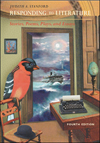 <a onClick="window.open('/olcweb/cgi/pluginpop.cgi?it=jpg:: ::/sites/dl/free/0767422783/42106/about.jpg','popWin', 'width=NaN,height=NaN,resizable,scrollbars');" href="#"><img valign="absmiddle" height="16" width="16" border="0" src="/olcweb/styles/shared/linkicons/image.gif"> (1.0K)</a> <a onClick="window.open('/olcweb/cgi/pluginpop.cgi?it=jpg:: ::/sites/dl/free/0767422783/42106/about.jpg','popWin', 'width=NaN,height=NaN,resizable,scrollbars');" href="#"><img valign="absmiddle" height="16" width="16" border="0" src="/olcweb/styles/shared/linkicons/image.gif"> (1.0K)</a> |  <a onClick="window.open('/olcweb/cgi/pluginpop.cgi?it=jpg:: ::/sites/dl/free/0767422783/42106/reading.jpg','popWin', 'width=NaN,height=NaN,resizable,scrollbars');" href="#"><img valign="absmiddle" height="16" width="16" border="0" src="/olcweb/styles/shared/linkicons/image.gif"> (1.0K)</a> <a onClick="window.open('/olcweb/cgi/pluginpop.cgi?it=jpg:: ::/sites/dl/free/0767422783/42106/reading.jpg','popWin', 'width=NaN,height=NaN,resizable,scrollbars');" href="#"><img valign="absmiddle" height="16" width="16" border="0" src="/olcweb/styles/shared/linkicons/image.gif"> (1.0K)</a> |  <a onClick="window.open('/olcweb/cgi/pluginpop.cgi?it=jpg:: ::/sites/dl/free/0767422783/42106/evaluating.jpg','popWin', 'width=NaN,height=NaN,resizable,scrollbars');" href="#"><img valign="absmiddle" height="16" width="16" border="0" src="/olcweb/styles/shared/linkicons/image.gif"> (1.0K)</a> <a onClick="window.open('/olcweb/cgi/pluginpop.cgi?it=jpg:: ::/sites/dl/free/0767422783/42106/evaluating.jpg','popWin', 'width=NaN,height=NaN,resizable,scrollbars');" href="#"><img valign="absmiddle" height="16" width="16" border="0" src="/olcweb/styles/shared/linkicons/image.gif"> (1.0K)</a> |  <a onClick="window.open('/olcweb/cgi/pluginpop.cgi?it=jpg:: ::/sites/dl/free/0767422783/42106/experiencing.jpg','popWin', 'width=NaN,height=NaN,resizable,scrollbars');" href="#"><img valign="absmiddle" height="16" width="16" border="0" src="/olcweb/styles/shared/linkicons/image.gif"> (1.0K)</a> <a onClick="window.open('/olcweb/cgi/pluginpop.cgi?it=jpg:: ::/sites/dl/free/0767422783/42106/experiencing.jpg','popWin', 'width=NaN,height=NaN,resizable,scrollbars');" href="#"><img valign="absmiddle" height="16" width="16" border="0" src="/olcweb/styles/shared/linkicons/image.gif"> (1.0K)</a> |  <a onClick="window.open('/olcweb/cgi/pluginpop.cgi?it=jpg:: ::/sites/dl/free/0767422783/42106/interpreting.jpg','popWin', 'width=NaN,height=NaN,resizable,scrollbars');" href="#"><img valign="absmiddle" height="16" width="16" border="0" src="/olcweb/styles/shared/linkicons/image.gif"> (1.0K)</a> <a onClick="window.open('/olcweb/cgi/pluginpop.cgi?it=jpg:: ::/sites/dl/free/0767422783/42106/interpreting.jpg','popWin', 'width=NaN,height=NaN,resizable,scrollbars');" href="#"><img valign="absmiddle" height="16" width="16" border="0" src="/olcweb/styles/shared/linkicons/image.gif"> (1.0K)</a> |  <a onClick="window.open('/olcweb/cgi/pluginpop.cgi?it=jpg:: ::/sites/dl/free/0767422783/42106/testyour_knowledge.jpg','popWin', 'width=NaN,height=NaN,resizable,scrollbars');" href="#"><img valign="absmiddle" height="16" width="16" border="0" src="/olcweb/styles/shared/linkicons/image.gif"> (1.0K)</a> <a onClick="window.open('/olcweb/cgi/pluginpop.cgi?it=jpg:: ::/sites/dl/free/0767422783/42106/testyour_knowledge.jpg','popWin', 'width=NaN,height=NaN,resizable,scrollbars');" href="#"><img valign="absmiddle" height="16" width="16" border="0" src="/olcweb/styles/shared/linkicons/image.gif"> (1.0K)</a> |
Born in a suburb of Dublin, Ireland, James Joyce received his early education
at schools run by Jesuit priests. Joyce had a troubled childhood: his father's
heavy drinking and resulting unemployment led the family into serious economic
difficulties. Nevertheless, Joyce was able to attend University College in Dublin.
After his graduation in 1902, he moved to Paris. Although he returned for a
brief time to Ireland to stay with his mother during her final illness, he left
again in 1904, believing that he had to leave his childhood home to examine
his complex thoughts and responses to his native land and to find the freedom
needed "to forge in the smithy of my soul the uncrated conscience of my
race." He spent the rest of his life living in major European cities--Trieste,
Zurich, and Paris--while writing Dubliners, the collection of short stories
in which "Araby" appears (written between 1904 and 1907; published
in 1914); Portrait of the Artist as a Young Man, an autobiographical
novel (1916); Ulysses (1922); and Finnegans Wake (1939).
Major works by Joyce Chamber Music, (1907, poems)
Dubliners (1914)
A Portrait of the Artist as a Young Man (1916)
Exiles (1918, play)
Ulysses (1920)
Collected Poems (1936)
Finnegans Wake (1939)
Letters, Vol. 1 (1957); Vols. 2--3 (1966)
The Critical Writings of James Joyce (1959)
Joyce and the Web The James
Joyce Resource Center at Ohio State University has a wealth of Joyce-related
resources, including a timeline, links, bibliographies, and an interesting image
gallery.
Interested in Irish history? This page from Irish
History on the Web contains excellent links to sites about Irish Home Rule,
which will help you put "Araby" and Joyce's other work into a historical context.
To see what's on other Joyceans' minds, check out this WWWBoard
at the Joycean.org website. |



 2003 McGraw-Hill Higher Education
2003 McGraw-Hill Higher Education




